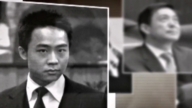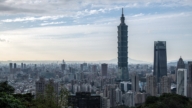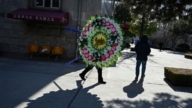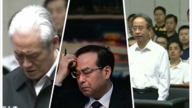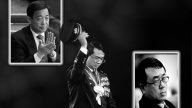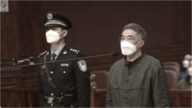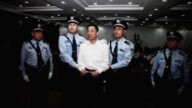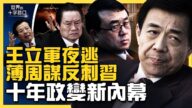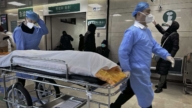【新唐人2012年4月2日訊】自重慶副市長、前重慶公安局局長王立軍2月6號進入美國駐成都總領事館至今,將近兩個月過去了,人們對王立軍事件仍在拼圖的階段,美、中都不提王立軍進入美領館的原因。日前,美國眾議員外交委員會要求美國國務院對此作出說明。
美國眾議員外交委員會主席羅斯雷提南28號在一個關於「中國威脅」的聽證會上,批評奥巴馬政府為了使中共國家副主席習近平訪美順利,竭盡所能,甚至可能為此拒絕中共官員王立軍尋求政治庇護。
羅斯雷提南表示,「奥巴馬政府可能拒絕了一個尋求庇護者,這個人有可能是一個具有高價值的情報來源,這個過程中有許多問題需要答案,我已經向國務院提出要求,現在正等他們就這件事給我詳細答復。」
在此之前,羅斯雷提南在習近平訪美前3天,曾致函國務卿希拉里(Hillary Clinton),詢問王立軍是否曾在總領事館填了申請表格、要求政治庇護,遭到白宮拒絕。
後來,美國國會眾議院「外交事務委員會監督和調查小組委員會」宣佈,自3月19號展開針對王立軍案的調查,並表示,將來有可能為此案舉行聽證會。
華府人權律師葉甯表示,白宮拒絕王立軍政治庇護的做法從情報價值來說,是一項損失。
葉甯:「這樣的做法從情報價值來說,對美國國家利益、國家戰略意義當然是損失慘重。但是問題不在這,這麼早的把王立軍扔出去,還可能放鬆了一次中國得到民主改革的機會。」
葉甯認為,如果王立軍在美領館多呆幾天,中國後面的形式大不一樣,它是促使中共內部分裂的最好機會,他說,這是很可惜的。而美國的做法與中共把脫離朝鮮者送還給朝鮮是一樣的。
葉寧:「現在把王立軍在24小時之內,沒有經過甄別,就迅速送給中共當局的做法,是顯示了美國政府完全無視、悍然踐踏國際公法,完全無視聯合國公約。」
同時,「英國廣播公司BBC」28號證實,王立軍曾接洽英領館會面,但最後沒有去,而是去了成都美領館。美國國務院情報官員譚慎格披露,王立軍準備去英領館,可能和英國商人海伍德(Neil Heywood)去年11月在重慶離奇死亡有關。
葉甯表示,薄熙來出事以後,中共出臺了三條「反人類」措施:一是,人大兩會通過了「惡法」把秘密失蹤合法化﹔二,強迫律師效忠中共,不簽訂賣身契就不能得到律師執照﹔還有「網路實名制」。這些措施,加上溫家寶有關改革的言論,迷惑了很多人。
葉寧:「迫害法輪大法學員的罪行,大部分是在中共勞教制度下的集中營裡面完成的,中共長期關著75萬到100萬的,沒有經過任何法律程序審判的勞教營的囚徒,而《勞動教養暫行條例》一暫行就暫行了60多年,就是國務院出臺的。作為國務院總理溫家寶做了多少事情,來實實在在的推行普世價值和改革?」
不過,「王立軍事件」已經引發了中共內部的混亂。
中共黨報《人民日報》29號發表文章,呼籲「與黨中央保持高度一致」,在大是大非上頭腦清醒,在路線原則上立場堅定。
《美國之音》援引中國人民大學教授周孝正的話說,粉碎「四人幫」以後中共不再提路線鬥爭,可是現在突然又說要「在路線原則上立場堅定」,潛臺詞就是中央有兩種意見,高層出現了派別,要不哪來的路線鬥爭?
《紐約時報》30號報導,中共中央政治局九常委討論關於免去薄熙來重慶市委書記職務時,主管政法的常委周永康,罕見的投下了反對票。
那麼,中共內部所指的路線鬥爭是誰,就不難理解了。
採訪/秦雪 編輯/宋風 後製/蕭宇
—————-
Reveal Truth of Wang’s Case
Wang Lijun, Vice Mayor of Chongqing and former director
of Chongqing Public Security Bureau entered the U.S.
Consulate General in Chengdu on February 6.
Two months later, people still are discussing
the Wang Lijun event.
The United States or Chinese authorities will not mention
the reasons for Wang entering the U.S. Consulate.
U.S. House of Representatives Foreign Relations Committee
recently asked the U.S. Department of State to clarify it.
On March 28, there was a hearing about the ‘China threat’.
U.S. House of Representatives Foreign Affairs Committee
Chairman Ros-Lehtinen criticized the Obama administration.
They tried their best to make Chinese Vice President
Xi Jinping’s visit successful.
They may therefore have refused Wang Lijun
to seek political asylum.
Chairman Ros-Lehtinen: “The Obama administration
is unlikely to reject an asylum-seeker, who may be
a high-value intelligence source.
In this process, there are many questions
needing answers.
I have made a request to the Department of State,
and am now waiting a detailed reply.”
Chairman Ros-Lehtinen had written to Secretary of State
Hillary Clinton three days before Xi Jinping’s visit.
She asked whether Wang Lijun filed application forms for
political asylum at the Consulate General.
The White House refused to reply.
Following this, Oversight and Investigations Subcommittee
of the Foreign Affairs Committee of the U.S. House
of Representatives made an announcement.
They were to commence investigation against the Wang Lijun
Case on March 19.
They may hold a hearing for the case in the future.
Ye Ning, a human rights lawyer in Washington DC,
said it is a loss that the White House refused Wang.
Wang had a lot of intelligence value.
Ye Ning: “On the intelligence value, this practice caused
heavy losses to U.S. national interests and national strategic
significance.
Moreover, abandoning Wang so early, may lose an opportunity
for democratic reform in China."
Ye said that if Wang Lijun stayed in the Consulate for a few
more days, it could cause quite a different situation in China.
It is the best opportunity to promote division within
the Chinese Communist Party (CCP).
Ye said this is a great pity.
The practice of US is the same as Communist China
returning refugees to N. Korea.
Ye Ning: “To return Wang Lijun to the Chinese authorities
within 24 hours, without screening, shows the U.S.
government’s complete disregard and flagrant violations
of international public law.
It shows a complete disregard of United Nations Convention."
Meanwhile, the British Broadcasting Corporation (BBC)
confirmed Wang Lijun had approached the British Council
for a meeting.
It did not go, and went to the U.S. Consulate
in Chengdu instead.
According to the U.S. Department of State intelligence official,
Wang Lijun got ready to go to the British Consulate.
It might be related to the mysterious death of British
businessmen Neil Heywood last November in Chongqing.
Ye Ning said that after Bo’s accident, the CCP has introduced
three ‘anti-humanity’ measures.
Firstly, the two sessions of the National People’s Congress
(NPC) passed a law allowing secretive detention to be legal.
Secondly, it allows lawyers to be forced to devote to the CCP.
They cannot get a license if they refuse to sign
a special statement.
Thirdly, is the ‘Internet real-name system’.
These measures, together with Wen Jiabao’s remarks
on reform, confused many people.
Ye Ning: “Persecution of Falun Gong practitioners mainly
happens in concentration camps under forced labor system.
The CCP has detained about 750,000 people long term
in forced labor camps without any legal procedure.
“Provisional Regulations on Re-education through Forced
Labor" was conducted for over 60 years.
This was promulgated by the State Council.
What did Premier Wen Jiabao do to implement
universal values and reform?”
However, the Wang event has led to chaos within the CCP.
The CCP newspaper, People’s Daily, published an article
on Mar 29,
It called for “Being highly consistent with the CCP Central
Committee”.
Being clear-headed in big issues and having
a firm stand on policies.
Voice of America quoted Professor Zhou Xiaozheng
in People’s University of China.
It said the CCP had no longer mentioned struggle between
two principles after the smashing of the “Gang of Four".
Now it suddenly said to “Stand firm on the principle".
The subtext is that there are two views in the central CCP.
They have different groups in the central CCP, or else why
is there struggle between two principles?
The New York Times reported on the issue on the 30th.
The nine Standing Committee members of the CCP
Political Bureau in Central Committee discussed whether
to remove duties of Bo Xilai as Party Secretary of Chongqing.
Zhou Yongkang who is in charge of Political Committee,
cast a negative vote, which was rare.
Principle struggle within the CCP
is not difficult to understand.



